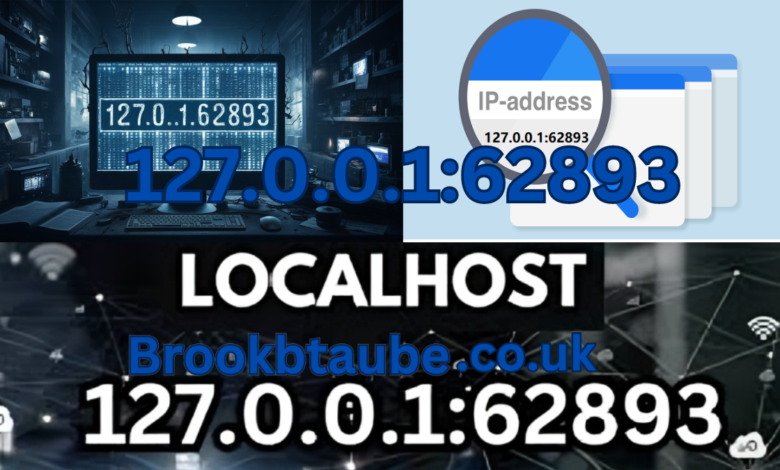Demystifying 127.0.0.1:62893 Exploring the Depths of Localhost Networking

In the vast universe of computer networking, certain combinations of numbers hold significant weight, even though they might appear cryptic at first glance. One such enigmatic duo is “127.0.0.1:62893”. To the uninitiated eye, it seems like a mere string of digits, but in reality, it represents a doorway into the intricate world of localhost networking. In this comprehensive article, we embark on a journey to unravel the mysteries behind “127.0.0.1:62893”, exploring its meaning, functions, and implications in the realm of computing.
Understanding 127.0.0.1:62893
Let’s dissect this seemingly random sequence:
- 127.0.0.1: This is the loopback IP address, commonly referred to as localhost. It’s a reserved address that points back to the device itself. In simpler terms, when a device sends data to this address, it’s essentially communicating with itself. This mechanism is crucial for various networking tasks, particularly during development and testing phases.
- 62893: This number represents a port. In networking terminology, ports serve as virtual endpoints for communication. They allow different applications or services on a single device to share a network connection without interference. Port 62893, in this context, is an arbitrary port number that could be associated with any application or service running on the local machine.
The Significance of the Loopback Address
The loopback address, 127.0.0.1, plays a pivotal role in networking, especially in scenarios where a device needs to communicate with itself. It’s extensively used in local development environments, where developers run and test applications without the need for external servers. By leveraging the loopback address, developers can simulate network interactions within the confines of their own machine, streamlining the development process and enhancing efficiency.
Port Numbers: Gateways to Services
Ports, on the other hand, facilitate the differentiation of traffic between various services or applications running on a device. They act as gateways, directing incoming data packets to the appropriate destination within the system. While well-known ports are reserved for specific services (e.g., port 80 for HTTP), arbitrary port numbers like 62893 are allocated dynamically for temporary use by applications or services.
Practical Applications of 127.0.0.1:62893
Now that we’ve grasped the fundamentals, let’s explore some practical scenarios where “127.0.0.1:62893” comes into play:
- Local Server Development: Developers often utilize localhost networking to create and test server-side applications without the need for external hosting. By assigning a port number like 62893 to their local server, they can interact with the application via a web browser or other client software, facilitating rapid iteration and debugging.
- Network Troubleshooting: System administrators and network engineers rely on the loopback address to diagnose and troubleshoot network-related issues. By sending test traffic to 127.0.0.1:62893, they can verify the integrity of network configurations, identify potential bottlenecks, and isolate faulty components within the system.
- Secure Communication: Certain security protocols, such as SSH (Secure Shell), utilize localhost networking to establish encrypted connections between the client and server components running on the same machine. By binding SSH to port 62893 on the loopback address, users can securely access remote systems without exposing sensitive data to external threats.
Security Considerations and Best Practices
While localhost networking offers numerous benefits, it’s essential to address potential security concerns:
- Firewall Configuration: Configure firewall settings to restrict access to localhost ports, preventing unauthorized external connections.
- Software Updates: Keep applications and services running on localhost up to date to mitigate the risk of vulnerabilities being exploited by malicious actors.
- Access Control: Implement strict access controls and authentication mechanisms for sensitive services listening on localhost ports to prevent unauthorized access.
Conclusion
In conclusion, “127.0.0.1:62893” serves as a gateway to the intricate world of localhost networking. From facilitating local server development to enabling network troubleshooting and secure communication, this combination of loopback address and port number plays a vital role in modern computing environments. By understanding its significance and adhering to best practices, developers and system administrators can harness the power of localhost networking to build robust, secure, and efficient systems.



